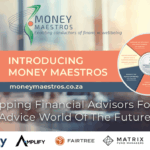The headline above is taken from an interview with renowned hedge fund manager and value investor David Einhorn. Einhorn was interviewed by Barry Ritholtz in February of this year[1]. In essence, Einhorn makes the point that the astonishing growth of market capitalisation weighted passive index investing over the past decades has resulted in a situation where large stocks attract ever increasing percentages of the global savings pool that is allocated to equities. Smaller stocks attract an ever-diminishing share of the global savings pool. This happens in entirely mechanical fashion. Ever fewer market participants apply their minds to assessing the underlying fundamentals of companies. Capital allocation has become divorced from the economics of the assets to which capital is being allocated.
Einhorn’s take on the implication of this is that the traditional way in which value investors generated excess returns no longer work. Traditionally, value investors buy the shares of a company trading on a depressed multiple of earnings, with the view that the prospects of the business are less dire than what the market is pricing in. When the market realises that prospects are in fact not as dim as feared, the share attracts more buyers, which drives the share price up and restores the earnings multiple to more respectable levels. The initially low valuation multiple mean-reverts to more respectable levels.
However, in the absence of sufficient capital being allocated on a fundamental basis, this process fails. There is nobody to come to the realisation that underlying business prospects have improved. The stock will be stuck in low-multiple purgatory forever, and the value investor’s source of alpha – mean reversion – has evaporated. The track record of classic or quantitative value investing for the past decade and more certainly makes this assertion plausible.
Chart 3: MSCI All Country World Value index vs. MSCI All Country World index: total return relative (USD, rebased to 100, log scale)

Two questions arise though. Firstly, is Einhorn’s assessment that passive investing has fundamentally broken capital allocation in markets true? And secondly, if it is true, does that indeed mean that value investing as it is traditionally defined is dead?
Has passive investing broken equity markets?
It is of course exceptionally difficult to answer this question categorically. Gut feel, anecdotal evidence and those at the receiving end of classic value investing’s multi-year underperformance may suggest ‘yes’. Those who have studied this topic in a more thoughtful manner come to very mixed conclusions.
U.S. investment firm GMO recently published a well-researched article on this topic[2]. Their conclusion: passive investing is likely to have had some effect on market efficiency and may have slowed down mean reversion, but the effect is likely overblown by market commentators. Firms like AQR[3].and Alpha Architect[4] have come to similar conclusions. Asserting that passive investing has broken the equity market makes for a great headline, but not such a great justification for underperformance.
If passive investing has broken the market, is value investing dead?
Let us ignore for a moment the inconclusive evidence about passive investing’s impact on the equity market. Let us assume that it has in fact fundamentally divorced asset prices from underlying economics. Does that mean that value investing is dead?
Here it is important to clarify what is meant by value investing in this context. Classic value investing is a simple process of buying stocks trading on relatively low multiples of earnings or book value or offering a high dividend yield. The research cited above does suggest that mean reversion in multiples (or stated differently, a re-rating of share prices) appears to be happening at a slower pace in recent years than in the past. To the extent that value investors have relied on this mean reversion to generate excess returns, passive investing has potentially made the alpha generation more challenging for classic value investors.
But mean reversion or re-rating of share prices is of course not the only way to profit from buying shares. To quote Einhorn from the same interview:
‘… if you pay four- or five-times earnings and the balance sheet is not levered and they’re able to return the cash and buy back 10, 15, 20% of the stock in four or five years, they’re going to run out of stock, or the stock is going to go up. So, you’re literally counting on the companies to make that happen for you.’
In the final reckoning, investing boils down to buying an asset with the expectation that the asset will produce cash flows that equate to a satisfactory return on the purchase price. If a company returns sufficient cash to an investor by way of dividends or share buybacks, an investor will do well from the investment – regardless of whether a share price re-rating occurs. We recently had exactly such an experience in the Hedge Fund: Bowler Metcalf. We covered that investment cycle in our Investor Letter of December 2023.
The absence of share price re-ratings clearly then does not preclude earning excess returns from traditional value investments. The timeframe over which the excess return is earned may extend though. In principle that should not be a problem: a diligent fundamental analyst should be valuing assets based on the cash flows the asset is expected to generate over its entire life. If that valuation is reasonable, and cash flow is generated and returned to investors as expected, return expectations will be met. No mean reversion or share price re-rating is required.
Cliff Asness expressed the following in a recent interview with the Financial Times[5]:
‘I’m sure you saw David Einhorn’s [comment that] the market is so inefficient you can’t make money. I agree that maybe things are a little less tethered to reality today. But I do find it odd to say: “My job forever has been identifying errors, and now errors are so big I can’t make money.” It can change the timeframe and how much pain you have to go through. But if your job is taking the other side, if you can stick with it — obviously a rather large if — it should be more lucrative.’
So what do we make of this debate? Firstly, we can’t argue with the evidence that suggests that, despite the enormous amount of capital allocated to passive investing nowadays, market efficiency has not been dramatically impaired. Secondly, to the extent that passive investing has impacted market efficiency, we expect the impact to play into the hands of patient fundamental investors. Investing based on the cash flows a company is expected to generate, rather than based on the price one expects the market to pay for the shares of the company, makes as much sense today as it always has.
Meet the authors


If you would like to know more about the Rozendal investment process, funds and availability, visit our website or contact Eugene Taljaard on eugene.taljaard@rozendal.com .
References
[1] A transcript of the interview is published here: https://ritholtz.com/2024/02/transcript-david-einhorn/
[2] https://www.gmo.com/americas/research-library/faq-passive-investing_gmoquarterlyletter/
[3] https://www.aqr.com/Insights/Research/Journal-Article/Is-Systematic-Value-Investing-Dead
[4] https://alphaarchitect.com/2022/10/effect-of-indexing/
[5] https://www.ft.com/content/50188553-1aa2-4704-ad9e-ef1e5cf0389e
Important information
This article contains information owned by third-party providers, which ROZENDAL has been licensed to use under strict usage conditions. Redistribution or reproduction, in whole or in part, without the consent of the third-party provider is not permitted. Third-party license providers shall not have any liability for any errors or omissions contained in the information.
ROZENDAL PARTNERS (PTY) LTD (“ROZENDAL”) is an authorised financial services provider (FSP 48271) in terms of the Financial Advisory and Intermediary Services Act (Act No. 37 of 2002).










